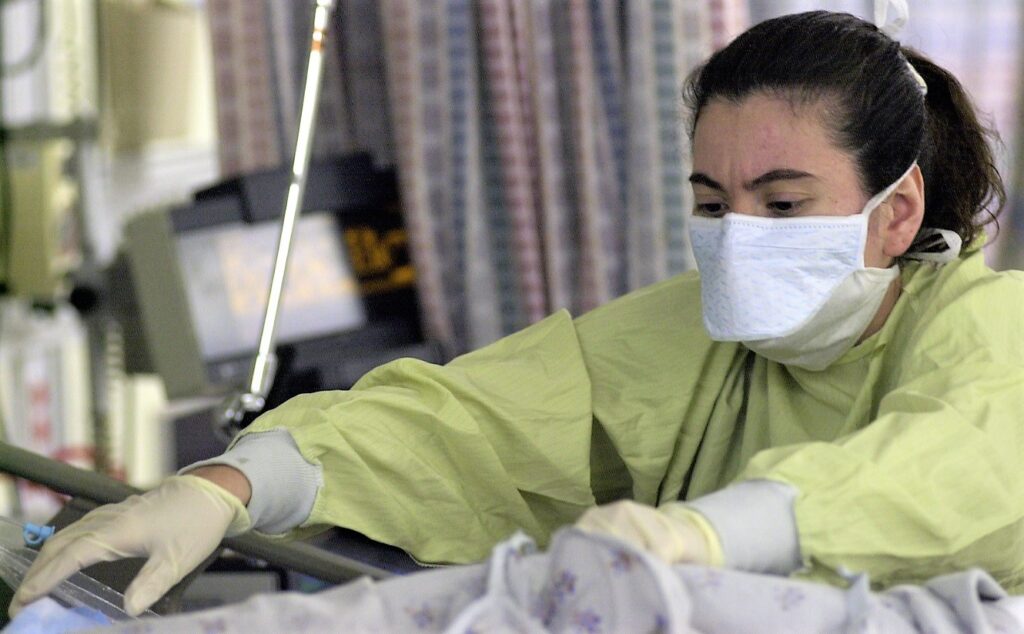The strategy of health authorities to respond to Covid-19 in the fall and winter is "possible" given the existing resources and should have been released sooner, defended today the Association of Doctors of Public Health.
"Given the reality of the National Health Service (SNS), the effort that has gone through and the situations of disruption in several hospitals in recent times, I think this is the possible strategy," the vice-president of Lusa told Lusa. association, Gustavo Tato Borges.
On Friday, the Directorate-General for Health (DGS) published the framework for the Autumn and Winter, that is, the guidelines for the NHS entities to respond to the pandemic in the coming months, which defines as the main objective the minimization cases of severe illness and mortality by Covid-19.
This strategy, which foresees three scenarios for the severity level of the pandemic situation, aims to “guarantee an efficient and coordinated response, adjusted to the epidemiological situation of SARS-CoV-2 infection and the additional challenges of the autumn/winter period, reducing the impact on morbidity and mortality in the general population and in risk groups”, the document states.
For Gustavo Tato Borges, the reference “should be more succinct and focused on those that are the specific measures to combat” the pandemic in the coming months, also regretting that it was published “with the autumn season in full swing”.
"I should have left more than a month ago so we can be completely prepared", warned the doctor, noting that "it's better to have time" for a hospital or a health center to prepare for an eventual greater pressure from their services.
The specialist in public health also added that, from the moment the restrictions were lifted, the “burden of responsibility for controlling the pandemic also began to rest with each citizen”.
"If there is nothing extraordinary, our reality may pass between the most favorable and the intermediate scenario, because there is no reason, at this time, to foresee a situation of extreme gravity" in winter, said the vice president of the National Association of Physicians of Public Health.
Scenario 1 predicted by the DGS assumes that there are no changes in the efficacy of the Covid-19 vaccine, nor the emergence of a new variant of concern in the coming months. In this situation, Portugal should register a moderate incidence of the virus, with reduced mortality and intensive care occupation, without additional pressure on the health system.
The intermediate scenario already predicts a slow reduction in the effectiveness of vaccines, by decreasing immunity over time, but still without the appearance of a new variant of the virus considered of concern.
In this scenario 2 the incidence of SARS-CoV-2 will be high, resulting in moderate to high occupancy of intensive care units and light to moderate pressure on the health system.
According to the assumptions and estimates calculated by the National Institute of Health Doctor Ricardo Jorge (INSA), the threshold defined at the level of intensive care is exceeded in the second half of January.
In the scenario considered the most worrying, 3, a new variant is expected to appear with characteristics that allow the evasion of SARS-CoV-2 to the immune system, causing a rapid reduction in the effectiveness of the vaccine, and an increase in the transmissibility of the virus and the severity of the disease.
In this case, the incidence of SARS-CoV-2 will be very high, as will the occupation of intensive care units in Portuguese hospitals, with INSA predicting that the threshold will be exceeded earlier, in the first half of January.
This scenario also points to a very high mortality due to Covid-19 and, according to INSA calculations, the defined threshold may be exceeded in the second half of December.


















Comments